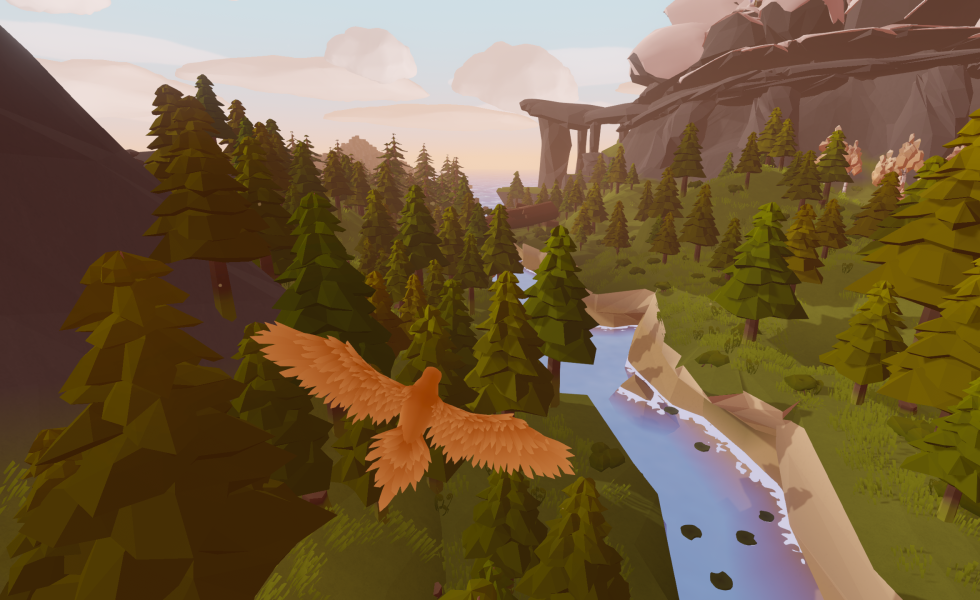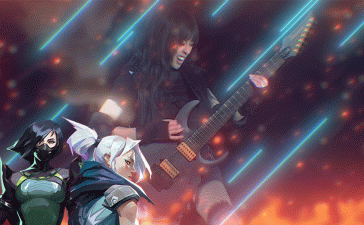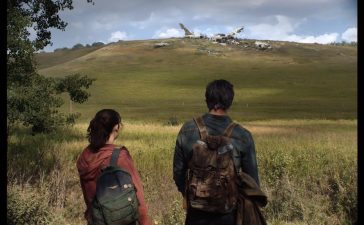If you didn’t catch the viral sensation of an Idaho Falls man gloriously cruising on a longboard down the highway, sipping on some OceanSpray and vibing along with Fleetwood Mac’s Dreams, here, behold before we go any further.
This viral video stands out in a world dominated by viral videos. This one wasn’t a distraction. This video was a lesson: We don’t need impulsive iso-purchases, elaborate large scale livestream productions or even crowded celebrity circle-jerks to decompress.
As we see with Nathan Apodaca AKA Doggface208, it looks a lot like all we need to feel some joy again is a bit of breeze in our face, some open space, and maybe a little something to drink.
Which brings us to Feather, created by Melbourne indie studio Samurai Punk, a game that embodies all the home truths handed to us by Sir Doggface208. Despite being a digital experience, Feather is a decompressing, enriching one all the same.
Soaring through the clouds and meandering between trees, crashing waves and runes, Feather is different from just about all video games in that it’s not Zen-like, it is Zen. Meditative; contemplative; a minimal, blissed-out moment in your day to get out of your head.
The fact that Feather has allowed us to unclench our jaws where so many therapists have failed has been both welcomed and baffling. So, we spoke with creator Nicholas McDonnell to learn more.
On paper, helping people relax is a great idea. But in practice, it’s almost impossible to do. How did you implement such a relaxing experience so successfully?
I didn’t come about this from a meditation perspective or from a broader perspective. I came into it at the game design perspective and I was studying intrinsic versus extrinsic rewards, at the time. Where extrinsic rewards are where if something tells you to do something and you get a reward for it. I was like, “Okay, well, Feather will be about intrinsic reward where the player will create their own goals.”
What that also meant is that the player isn’t driven by anything external. The game, by not having a rewards, there’s no time pressures, there’s no combat mechanics. There’s no mechanics that punish the player in any way. That was always very important. We intentionally never wanted to play it to ever feel like the experience was done. I think by removing all those elements, the player is entering a space. They’re not entering a game and it’s just a different approach to the design.
It’s a de-stressing experience across many of the senses, with sound being a big one. The soundscape of Feather is comprised of beautiful, serene compositions. How did you work with the composer, Mitchell Pasmans?
He’s a friend of a friend basically, and I had, at the time, had only known him as being a drummer in a pop-punk band.
The original prototype I used post-rock and he was like, “Why the fuck are you using this post-rock?” It was some royalty-free Explosions in the Sky knockoff. We went in a slightly different direction where it was much more soaring – that’s the only adjective I think I can apply to it.
Sometimes what would happen was Mitch would provide me with a song with no context and I would build an area for that song.
We had a point where the island was kind of mapped out, but there wasn’t a lot of detail in it yet. Mitch had provided four of the six songs and we would get the song and listen to it and be like, “If we put this here, then these trees or these plants will fit that area and it’ll reinforce what the music’s doing.” In a lot of ways the music is inspiring the game, not the other way around.
There’s a big trend at the moment of making everything customizable. Look at Red Dead where you can do anything…
…You can customize your bird in Feather, come on!
You’re right. It’s not completely locked out. When I look at something coming up like a Cyberpunk, I get anxious because I’m thinking, “Oh fuck, this is going to be such a crazy commitment.” Do you think that there is an opening now in the market for games where less is more?
I would say there is a niche, but finding those people is really hard. That’s the interesting thing that we found with Feather is that the people that are jiving with it don’t fit into your normal gamer spaces.
Animal Crossing, obviously, was this big thing at the start of COVID. The timing, obviously, on that was perfect. But we don’t even gel with those players; they need chores, activities. That’s what is keeping them playing. This game actually overlaps with a slightly different demographic, which I can’t quite point to. I can’t tell you where they’re coming from.
The way you present it and how it inserts into your life is like, it’s going to be different for every person. And that’s a tricky thing to say, like, “You don’t know until you’ve played it that you probably need this game.”
This definitely serves an audience and there are people who need this in their lives. People have told us that they’ve lost family members recently and this helped them get through it or they use this every night to help them sleep. It’s not huge, but it is very important.
So, where do you want to go next with this? Are you chomping at the bit to do a Cyberpunk thing where you just have so much functionality and so many layers and everything’s fucking going on?
We would never add that shit to the game. The Xbox and PlayStation versions have come after a year of development on the game, after it had already been out on PC and Switch. So, what you’re seeing is a year of me thinking about how this game has been critically received and adding to it what I think will benefit the people who already like it.






